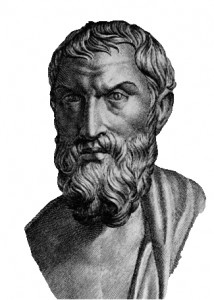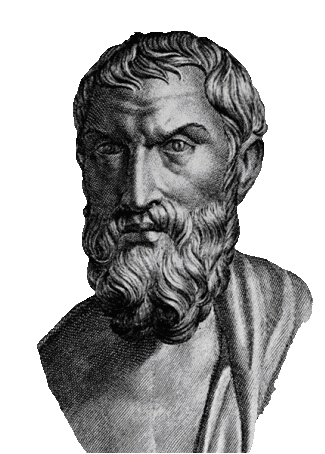Peace and Safety For Your Twentieth of September!
 Peace and Safety to the Epicureans of today, no matter where you might be!
Peace and Safety to the Epicureans of today, no matter where you might be!
Today, at a time when much of the world is cowed into silence by an oppressive religion, it is good to remember our courageous heritage from the ancient Epicureans. Few texts preserve this heritage with as much color as Lucian’s Alexander the Oracle-Monger. Through this passage we can look back to a day when the imposters of religion feared and despised the name “Epicurean” even more than the word “atheist” – and this selection from Lucian reminds us that there is far more to Epicureanism than what the world believes to be “atheism.” Until the day of Epicureanism comes again, let this serve as a reminder –
As I have said, Alexander was much afraid of Epicurus, and the solvent action of his logic on imposture. On one occasion, indeed, an Epicurean got himself into great trouble by daring to expose him before a great gathering. He came up and addressed him in a loud voice, “Alexander, it was you who induced So-and-so the Paphlagonian to bring his slaves before the governor of Galatia, charged with the murder of his son who was being educated in Alexandria. Well, the young man is alive, and has come back, to find that the slaves had been cast to the beasts by your machinations.” What had happened was this: The lad had sailed up the Nile, gone on to a Red Sea port, found a vessel starting for India, and been persuaded to make the voyage. He being long overdue, the unfortunate slaves supposed that he had either perished in the Nile or fallen a victim to some of the pirates who infested it at that time; so they came home to report his disappearance. Then followed the oracle (indicting the slaves with murder), the sentence, and finally the young man’s return with the story of his absence.
All this the Epicurean recounted. Alexander was much annoyed by the exposure, and could not stomach so well deserved an affront; he directed the company to stone the man, on pain of being involved in his impiety and called Epicureans. However, when they set to work, a distinguished Pontic called Demostratus, who was staying there, rescued him by interposing his own body; the man had the narrowest possible escape from being stoned to death—as he richly deserved to be; what business had he to be the only sane man in a crowed of madmen, and needlessly make himself the butt of Paphlagonian infatuation?
This was a special case; but it was the practice for the names of applicants to be read out the day before answers were given; the herald asked whether each was to receive his oracle; hand sometimes the reply came from within: To perdition! One so repulsed could get shelter, fire or water, from no man; he must be driven from land to land as a blasphemer, an atheist, and—lowest depth of all—an Epicurean!
In this connection Alexander once made himself supremely ridiculous. Coming across Epicurus’s Principal Doctrines, the most admirable of his books, as you know, with its terse presentment of his wise conclusions, he brought it into the middle of the marketplace, there burned it on a figwood fire for the sins of its author, and cast its ashes into the sea. He issued an oracle on the occasion:
“The dotard’s doctrines to the flames be given.”The fellow had no conception of the blessings conferred by that book upon its readers, of the peace, tranquility, and independence of mind it produces, of the protection it gives against terrors, phantoms, and marvels, vain hopes and insubordinate desires, of the judgment and candor that it fosters, or of its true purging of the spirit, not with torches and squills and such rubbish, but with right reason, truth, and frankness.
…..
My object, dear friend, in making this small selection from a great mass of material has been twofold. First, I was willing to oblige a friend and comrade who is for me the pattern of wisdom, sincerity, good humor, justice, tranquility, and geniality. But secondly I was still more concerned (a preference which you may be far from resenting) to strike a blow for Epicurus, that great man whose holiness and divinity of nature were not shams, who alone had and imparted true insight into the good, and who brought deliverance to all that consorted with him.
It is pleasant to think that we too, even today, can strike a blow for Epicurus, that great man whose holiness and divinity of nature were not shams, who alone had and imparted true insight into the good, and who brought deliverance to all that consorted with him!
__________
As Seneca recorded: Sic fac omnia tamquam spectet Epicurus! So do all things as though watching were Epicurus!
And as Philodemus wrote: “I will be faithful to Epicurus, according to whom it has been my choice to live.“

